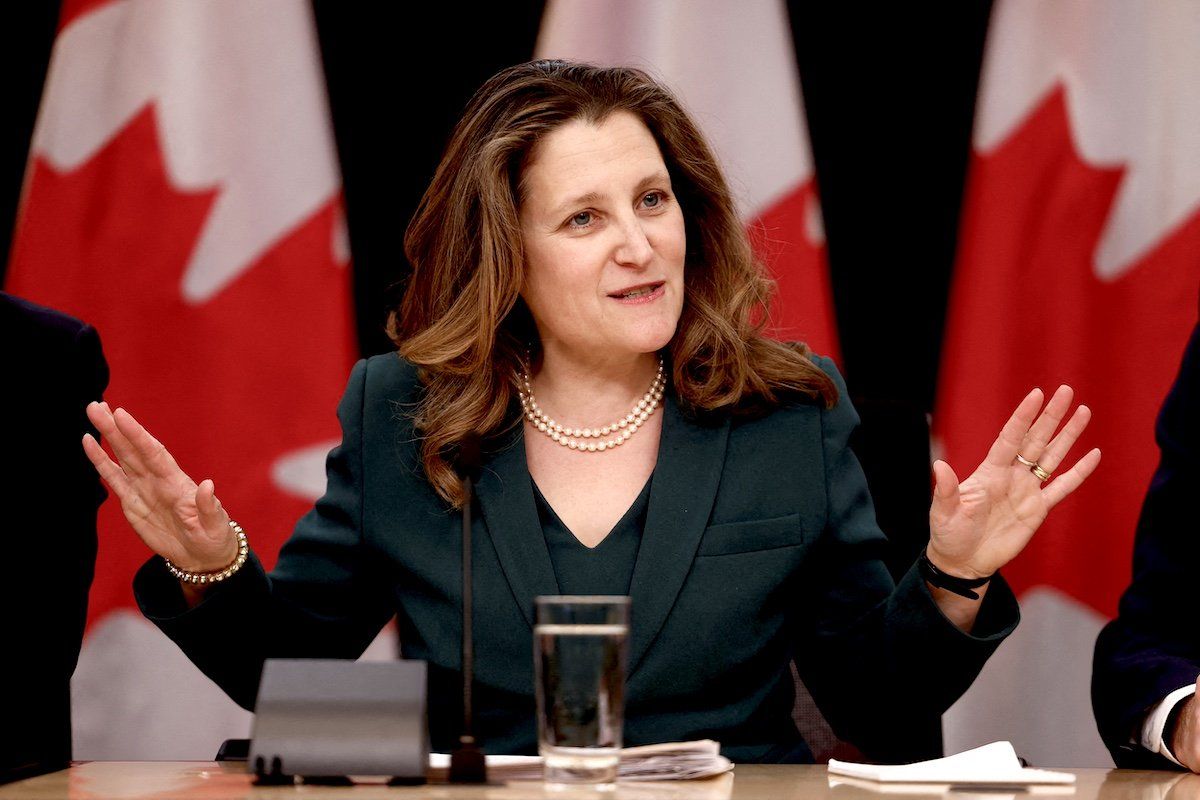Canada's Deputy Prime Minister and Minister of Finance Chrystia Freeland takes part in a press conference in Ottawa, Canada, on Jan. 29, 2024.
Canadian Finance Minister Chrystia Freeland plans to unveil the federal budget on April 16, a release that will be keenly watched north and south of the border. Big Tech companies, in particular, will be looking for clues about when Canada will implement its long-promised digital services tax.
Justin Trudeau’s cash-strapped Liberal government hopes to raise up to $2.5 billion over five years by imposing a 3% tax on companies like Alphabet, Meta, Uber, Amazon, and Airbnb. First promised in the 2021 budget, the Trudeau government said it would implement the tax on Jan. 1, 2024, retroactive to 2022.
Aside from raising much-needed funds, targeting tech giants has the additional benefit for Trudeau of being popular politically. His government has already whacked Alphabet and Meta with its Online News Act, forcing them to share revenues with Canadian news publishers (Meta responded by removing news links from Facebook in Canada), and its Online Harms bill, which compels social media platforms to regulate harmful content or face punitive fines.
Freeland says the digital tax is a “matter of fairness,” given that tech giants have been booking their profits in low-tax jurisdictions.
A move by OECD countries to implement a global minimum corporate tax rate of 15% has gained traction, but US opposition persuaded a majority to vote for a year-long delay last summer. Freeland said she preferred a multilateral approach but that Canada is prepared to move forward alone.
US trade representative Katherine Tai has warned that the Biden administration considers the tax discriminatory and will retaliate with tariffs.
A letter from Senate Finance Committee chair Ron Wyden (D-Ore.) and Ranking Member Mike Crapo (R-Idaho) in October said that any retaliatory steps would have bipartisan support.
Those threats seem to have registered with Freeland. In her fall economic statement, she removed the Jan. 1 deadline, while introducing legislation that would allow the federal government to implement the tax later. The budget may indicate whether Canada still plans to go it alone and risk Washington’s wrath, or wait for a new multilateral effort.
